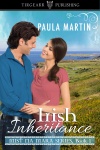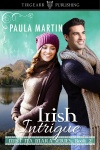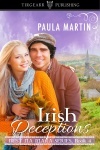Welcome romance writer, Paula Martin, to Hearticles. She's guest posting about adverbs in our stories. Take it away, Paula.

However, this doesn’t mean that ALL adverbs have to be deleted! Sometimes an effort to do that can lead to clunky writing, especially if the writer is simply substituting an adverbial phrase in place of the adverb. Isn’t it better to say He stroked her cheek tenderly instead of He stroked her cheek in a tender manner (or any other verbose description of what ‘tenderly’ means).
Do a search of your latest chapter for ‘ly’ words, and you’ll probably (there’s one!) be surprised by how often you use words ending in ‘ly’. Then consider how the sentences containing each of those words could be rewritten. Could I have removed ‘probably’ from the above sentence? Yes, but then I’d be assuming that you will be surprised or, worse still, insinuating that you have used millions of adverbs! Omitting that adverb would change the whole meaning of the sentence – and that can be true in our fiction writing, too. Therefore we need to choose carefully which adverbs to retain and which to delete or replace.
I do think we need to be aware of not overusing adverbs, but at the same time, not go overboard trying to find other words or phrases. There’s always a danger of giving the impression that you have swallowed a thesaurus – and sometimes a simple adverb is the best word to use.
Thank you, Paula!
Readers, take at look at your writing. Please feel free to share an example or two of what you found and how you've changed it.
And feel free to let us know if you have any questions in the comments below.
Paula Martin lives near Manchester in North West England and has two daughters and two grandsons.
She had some early publishing success with four romance novels and several short stories, but then had a break from writing while she brought up a young family and also pursued her career as a history teacher for twenty-five years.
She returned to writing fiction after retiring from teaching, and is thrilled to have found publishing success again with her contemporary romances.
Apart from writing, she enjoys visiting new places and has travelled extensively in Britain and Ireland, mainland Europe, the Middle East, USA and Canada. Her other interests include musical theatre and tracing her family history.
Paula is the author of the Mist na Mara series, and Her Only Option.





Find Paula online:
Website - http://paulamartinromances.webs.com
Facebook - https://www.facebook.com/paulamartinromances
Facebook - https://www.facebook.com/RomancesbyPaulaMartin
Blog - http://paulamartinpotpourri.blogspot.co.uk
Blog - http://heroineswithhearts.blogspot.co.uk
Tirgearr Publishing - http://www.tirgearrpublishing.com/authors/Martin_Paula
• • •

‘The road to hell is paved with adverbs.'
- Stephen King
In one sense, I agree with him. Adverbs can often indicate lazy writing. Recently I read a novel (by a best-selling author) which was littered with adverbs, especially after dialogue tags. On one Kindle page alone, there was: said truculently, said coldly, retorted sarcastically, said wearily, reiterated sullenly, said dourly - and when I got to 'she ejaculated hoarsely’ I nearly splurted my coffee in the middle of Starbucks!
Yes, there are times when we should avoid adverbs, especially when they are redundant e.g. she whispered quietly or when the adverb can be replaced by a stronger verb, e.g he raced down the street instead of he walked quickly. Of course, you could tell your readers: The rain came down heavily, and the wind blew strongly against the side of the car – but how much better to give them a visual and audible experience – Strong gusts slammed against the car and the frenzied to and fro of the wipers wasn’t fast enough to cope with the rain that battered the windscreen and pummelled the car roof like a thousand metal nails.
With dialogue, it is usually better to show (with a smile action/gesture) how a character is feeling, rather than giving readers a plethora of synonyms for ‘said’ combined with adverbs to tell them how someone said something. For example, with the above speech tags, She said truculently could be replaced by She scowled or She glowered at him. Similarly, she retorted sarcastically might be better shown as She crossed her arms and smirked. I’ll leave it to you to find a better way of showing how she ejaculated hoarsely!
However, this doesn’t mean that ALL adverbs have to be deleted! Sometimes an effort to do that can lead to clunky writing, especially if the writer is simply substituting an adverbial phrase in place of the adverb. Isn’t it better to say He stroked her cheek tenderly instead of He stroked her cheek in a tender manner (or any other verbose description of what ‘tenderly’ means).
Do a search of your latest chapter for ‘ly’ words, and you’ll probably (there’s one!) be surprised by how often you use words ending in ‘ly’. Then consider how the sentences containing each of those words could be rewritten. Could I have removed ‘probably’ from the above sentence? Yes, but then I’d be assuming that you will be surprised or, worse still, insinuating that you have used millions of adverbs! Omitting that adverb would change the whole meaning of the sentence – and that can be true in our fiction writing, too. Therefore we need to choose carefully which adverbs to retain and which to delete or replace.
I do think we need to be aware of not overusing adverbs, but at the same time, not go overboard trying to find other words or phrases. There’s always a danger of giving the impression that you have swallowed a thesaurus – and sometimes a simple adverb is the best word to use.
• • •
Thank you, Paula!
Readers, take at look at your writing. Please feel free to share an example or two of what you found and how you've changed it.
And feel free to let us know if you have any questions in the comments below.
• • •
Paula Martin lives near Manchester in North West England and has two daughters and two grandsons.
She had some early publishing success with four romance novels and several short stories, but then had a break from writing while she brought up a young family and also pursued her career as a history teacher for twenty-five years.
She returned to writing fiction after retiring from teaching, and is thrilled to have found publishing success again with her contemporary romances.
Apart from writing, she enjoys visiting new places and has travelled extensively in Britain and Ireland, mainland Europe, the Middle East, USA and Canada. Her other interests include musical theatre and tracing her family history.
Paula is the author of the Mist na Mara series, and Her Only Option.





Find Paula online:
Website - http://paulamartinromances.webs.com
Facebook - https://www.facebook.com/paulamartinromances
Facebook - https://www.facebook.com/RomancesbyPaulaMartin
Blog - http://paulamartinpotpourri.blogspot.co.uk
Blog - http://heroineswithhearts.blogspot.co.uk
Tirgearr Publishing - http://www.tirgearrpublishing.com/authors/Martin_Paula